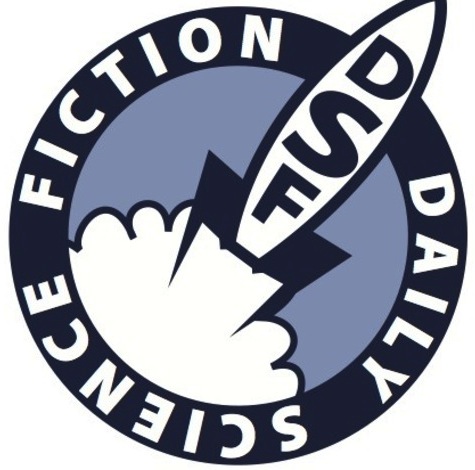Welcome back to the Short Fiction Spotlight, a space for conversation about recent and not-so-recent short stories. For the past two weeks we’ve been talking about The Apex Book of World SF 3, but this time around, I thought I’d shift gears to a current digital publication—one that actually hasn’t popped up here yet: Daily Science Fiction. Thanks to their format—a story every weekday—I often end up overlooking them due to sheer volume of publication; it’s not like dropping in once a month to read a couple of pieces.
However, since they do publish so much, it seems a shame to not take a look at some recent stories from them. And since DSF publishes so much more flash fiction than other currently running magazines, I thought I’d focus on a few of those pieces: “’Ulder’” by Vajra Chandrasekera, “Do Not Count the Withered Ones” by Caroline M. Yoachim, and “Readymade” by Shannon Fay. The first two are tagged “magic realism,” while the third is tagged “virtual reality.”
“Ulder” by Vajra Chandrasekera (published July 31, 2014) is a good example of one of forms decent flash fiction often takes. It’s one of those pieces that relies on allusion and familiar echoes of other narratives to create an effect; it’s quite short, but the connections it forms to similar stories (dystopic word-policing like 1984; linguistic viral memes like The Red Tree) give it more resonance. The protagonist, on hearing the titular word “ulder” on a train, becomes infected with it though he argues with his lover that there’s no such thing as the viral memes. In the quick-flitting strokes of the rest of the story, Chandrasekera then sketches out the loss of the lover to the police and the spread of the word to the next hearer.
The action is therefore quite simple and straightforward; summarizing it takes hardly a moment. But the story paradoxically works well without a dense narrative precisely because of that aforementioned familiarity of tropes and associations, the ability the story has to illustrate itself through the mind of the reader rather than on the page directly. As readers we understand the conventions of the dystopic police state and the nature of language-games already—so, though we never find out what “ulder” means or is about, the story is still affectively functional. It’s discomfiting and a bit surreal, in the end. (And actually, I really appreciated that there was no attempt to explain the word to us and that the scene where the protagonist finds out cuts away before we-the-reader can be told.)
Then there’s the other piece tagged magic-realism, “Do Not Count the Withered Ones” by Caroline M. Yoachim (published August 12, 2014). In this one, people have “hearts” that nourish plants for their loved ones; the protagonist’s mother seems to have dementia, and her garden has dried up because she doesn’t remember her daughter anymore. But, nonetheless, the daughter still has a little of her mother’s tree left—and it’s better than nothing, to be able to see her at least still. This is the other style of flash piece I often see: it’s more or less an extended metaphor, an exploration of one clear image or idea and its potential effects on the characters.
Think of it sort of like a cousin of the sf-nal “idea story”—and one that, at such short lengths, works a little better than at greater. An idea that can’t sustain a lot of narrative can nonetheless be momentarily diverting and handsome, which is what I would say the Yoachim piece is: while it’s fairly narrow in scope and tone, it explores its singular moment of time well and illustrates the bittersweet nature of caring for an elderly parent through the concept of the “heartplants.” I didn’t adore it, but it was pleasant and the image of the gardens made by kinship was interesting.
However, of the handful of flash stories I read while perusing Daily Science Fiction’s recent publications, I also ran into quite a few that didn’t quite succeed with the form; “Readymade” by Shannon Fay (published August 4, 2014) was perhaps one of the least impressive—it’s rather flat. Though it treads familiar ground for near-future sf stories, it doesn’t do so to significant emotional effect like “Ulder,” and though it’s illustrating a single idea like Yoachim’s story, it doesn’t have enough personal detail to flesh it out and make that snapshot of an idea feel fresh. (It also ends on a groan-inducing zinger line, which is something that I may or may not have a bit of a personal vendetta against.)
“Readymade” is attempting to be clever with a twist in its short space, also—that not just the party but the guests are ready-made to be packed and unpacked for the protagonist who has no friends and is trying not to drink alone. However, it’s pretty easy to see that one coming, and the party scene itself—the other characters in it and the protagonist too—has no depth. It feels like something a reader might have come across a hundred times before in exactly the same way. With a length this short, it’s more significant to have something fresh and engaging right away; there’s not enough room to sprawl and experiment for affect and narrative.
So, of the bunch of flash pieces I read, I did find some reasonably enjoyable and worth the time. They’re good brief diversions, quick reads that at their best have a clever idea, an intriguing image, or a concentrated bit of emotion at the center. It’s sort of like nibbling through a box of chocolates, surfing the flash fiction at DSF; some are the ones you love, some aren’t, but it’s still chocolate and it’s still mostly pleasant to eat.
Lee Mandelo is a writer, critic, and editor whose primary fields of interest are speculative fiction and queer literature, especially when the two coincide. She can be found on Twitter or her website.










